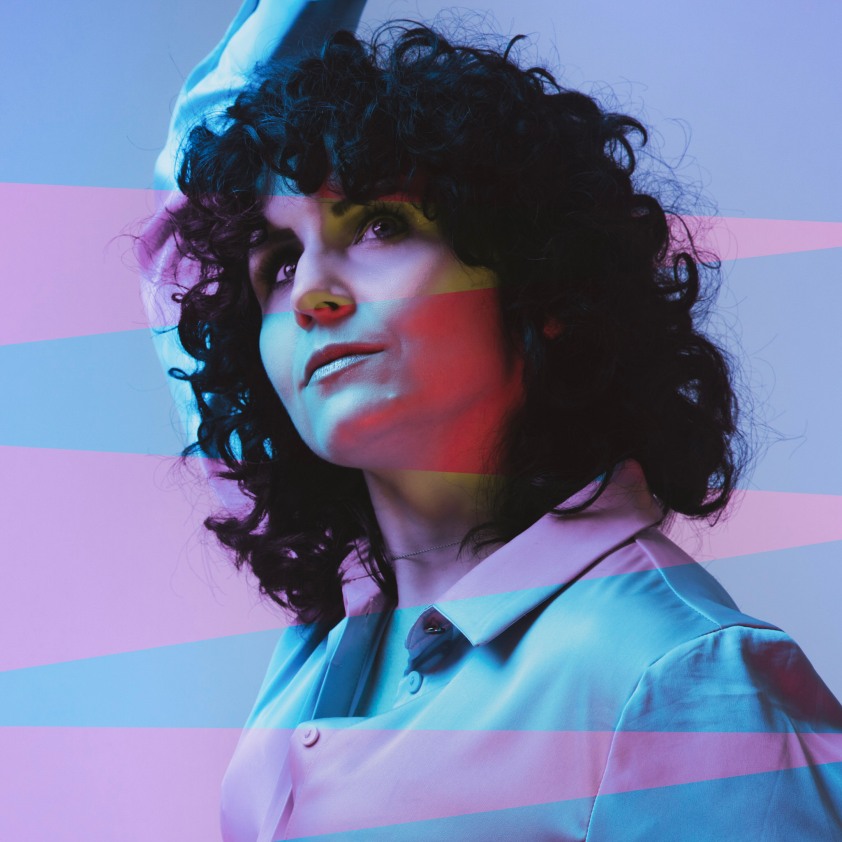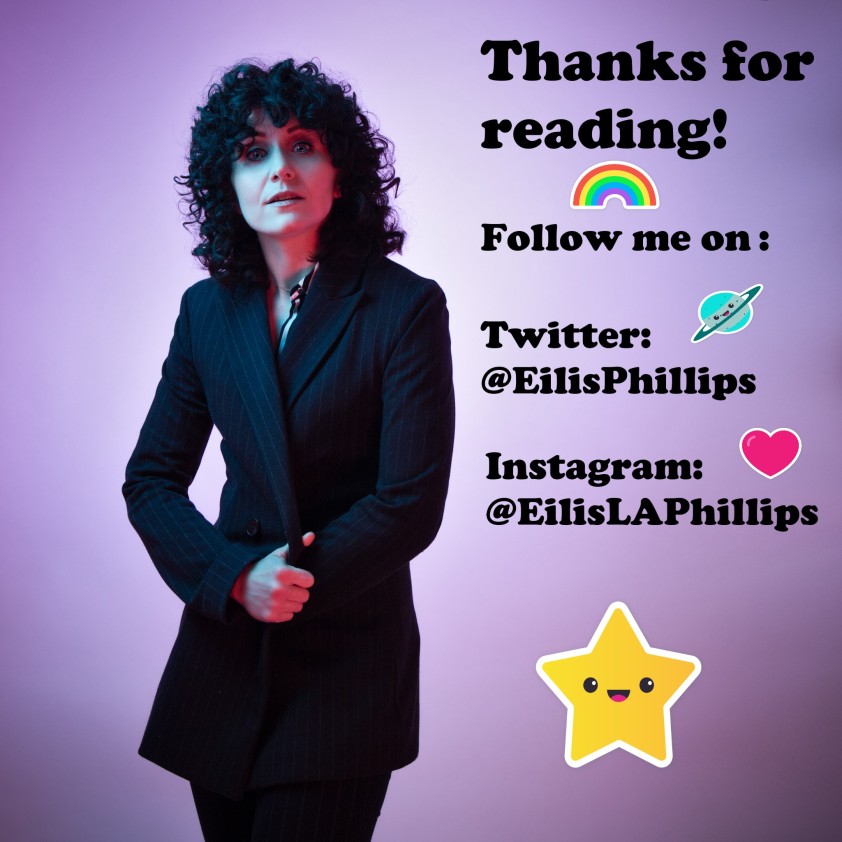No rules. No routine.
I am woken every morning by the sound of my alarm clock.
That sounds perfectly normal. Except it isn’t my alarm clock at all, it’s me. And when I say I am woken by the sound of my alarm clock, I am not woken by a sound, I am woken by the pattern of a sound.
I’ve stopping actually setting my own alarm clock because I don’t need it anymore. About 7 hours and 45 minutes after I get into bed I am woken every day thinking that I can hear my phone alarm singing its happy little song, encouraging me to wake up. But as I said, my alarm isn’t switched on. What actually happens is that I see a pattern in my mind, and then in front of my eyes when I open them. It is the pattern the alarm would make, were it on. It’s a row of miniscule golden bells on a thread. They jingle up and down rhythmically and sometimes emit coloured orbs, some are neon green, some are neon pink. The string of bells threads across my consciousness encouraging me away from sleep and into waking. I see it for about a minute in my field of vision after I’ve properly woken up. Then it gentle fades from view. The invisible bell ringers have done their work.
When it first started happening I thought that my alarm must be going off – that I must somehow have missed some setting – that my phone was somehow managing to play tricks on me. I hadn’t trained my brain to do this of its own accord. How was this happening? What was odd to me, also, was that it wasn’t as if it was happening at the same time every day. No matter what time I go to bed, it will wake me exactly 7 hours and 45 mins later.
It’s the only true thing I rely on now. I’ve gotten rid of all my routines – except those that are connected to my OCD, which I struggle to change so I just give in to them. Like checking all the plugs, and all the doors – I go up and down my stairs every night over and over again just to touch the front door and go back up. Sometimes it feels relentless, humiliating, like I’m being punished for something. Sometimes it feels very prosaic and everyday. It’s just a thing I do. It’s fine. I try now to let my OCD impulses wash over me like a wave. When they hit I flow with them. It’s all I can do.
I know that we are told all the time to have a routine. That’s it’s what we need as humans. That it will give us structure. But I’ve come to realise that for me, and possibly others, that isn’t the case. Yes, I need to eat regularly and get enough sleep, and all those sensible things, but other than that, what does routine do for me? Do I need it now, alone, in lockdown?
When I had a 9 to 5 job I struggled with the routine element. Everyday seemed relentless. Every morning and evening the same script. Once you start one routine, you find yourself building others, and then more and then more, all to support the routines which went before. Like a giant game of Jenga. You are terrifed of altering those routines in case the whole tower you have built for yourself collapses. I’m not trying to be judgemental here, I’m just saying how I conceptualise it as a single adult without dependents. Routines beget routines, as I said. You go to bed at a certain time so you find yourself doing the washing up at a certain time, brushing your teeth at a certain time, for a certain amount of time just so that you can reach that magic go-to-bed hour so you can get the right amount of sleep in to function. When you binge watch episodes and break your curfew it’s that little voice of rebellion inside which is prompting you, but the guilt seeps in. It’s not what an adult would do because adults make routines and stick to them.
But I don’t have a job anymore. I was an agency worker for the Council and my contract was terminated when the pandemic shut all the offices down. I’ve been ill for 5 weeks now. I’ve had a respiratory virus. I can’t get tested for Covid-19 because I wasn’t admitted to hospital, I am not yet registered with a doctor and there just aren’t any tests available. The symptoms are endless and varied. Every week, and sometimes every day, there’s a new ache or pain, there’s an upset stomach or vomiting, lungs incased in cast iron or bubbling underwater. I tried to do too much last walk, to walk too far in the cold and I paid for it with days of feeling like a beached fish struggling about on the sand. I try to stand up and my heart pounds and my vision blurs and reaching for a glass of water feels like a massive undertaking that might be beyond me. But sometimes, I’m alright again. It helps to rest. It helps not to worry. I am getting better slowly. I will rally. At its worst, I promised myself I wouldn’t die on my couch. Now I’m recovering I have to promise myself I will get up off it.
I know a lot of other people who are suffering with this thing too. We share our symptoms quietly over the internet or on the telephone. We sneak out to buy milk and try not to come to close to anyone. We dread that at some point we might need to cough. Feeling the deep Corona shame. We should be staying at home. I’ve started watering down my milk. Asking for help can feel diffcult and shameful. My friends have been incredible. I have left their smeared handprints on my window so that I see them every time the sun shines through. It illuminates them like the halos of saints on stained glass chapel windows. I’ve stopped going out at all now unless I absolutely have to. The cold air hurts my lungs and I can’t stop thinking about that piece of Hindi scripture that Oppenheimer famously quoted whenever I fear that people are walking too close to me. That I am become death, destroyer of worlds.
I worry that after this is over no one will want to hug me anymore, because you know, you’d had the ‘Rona. Maybe it becomes part of you. Like a weird badge. Maybe I’ll be immune. Maybe I haven’t even had it and this is some other horrendous, debilitating viral horror. I’m getting used to strangers on the internet asking me whether I ‘have it’ or not. Everyone just wants you to be okay and get better. I feel disappointed when I have to tell them I’m still not well. Sometimes I lie because it’s just easier. Tough people fight! Tough people don’t get sick! All that. It’s hard to escape it when your symptoms are visual. When every sound my lungs make forms a pattern I see around me. When you breathe and you see pain as sharp green spark expanding outwards from your chest ringed with clouds of ice-cold blue. A blue corona perhaps.
So I don’t have routines anymore. I don’t have goals. I don’t write down everything I’ve achieved that day in a spreadsheet like I used to. In a way, lockdown is achieving all the hopes my counsellor had for me when I was a PhD student. That I would stop seeing myself as a productivity machine. That I would rest and not feel a deep, existential sense of guilt. In sickness I have finally reached the stage where I no longer feel guilty for just sitting, and laughing, or crying or listening to music without producing anything meaningful. I don’t have any more routines because then I don’t have anything to fail.
Instead, every day, I now write down in a book one thing, at least, that I did that day that was different. That broke my routine. That made that day special and meaningful to me. They are usually small. Yesterday I spoke to a dear friend on the phone for the first time. We had never called each other before. Today I think my new thing will be making a new recipe: spicy noodle soup with broccoli, green beans and chilli. It will also be writing this blog post. I have a box beside my couch; in it I keep drawing materials, spare socks, tissues, diaries, handcream, a blanket and a little book which I write Italian phrases in. I’m enjoying learning the language but I do so without goals, without guilt. I practice my phrases on a spider who lives in the corner of my living room. I’ve named him after a favourite Italian TV character, accosting him every so often by shouting: Mimì!! Come stai! Or I call to him when I can’t see him. Allora. Cosa fai? Dove sei? I do it mostly because it makes me laugh. You have to break up the silence with laughter.
This post isn’t entirely about synaesthesia, but then neither is my life. My synaesthesia is just an extra sense I use to interpret the world, just like an extra language. But it is one which almost no one else speaks. This blog post is just like my shouting to my spider friend who never answers because he’s a spider and doesn’t speak Italian. He knows I’m down here, shouting, but I can’t expect him to have first hand understanding of the experience of being human. And yet it is a comfort. The words come out of my mouth in a string, or like guns out of a cannon. They have edges which graze my mouth in an almost pleasant way. It feels nice to see a voice in the house.
So no routines then, and no goals. I eat when I get hungry. I wash everyday when the urge takes me. I sit down on the couch and sometimes I just watch the little everyday sounds as they come and go around me. Right now I see and taste the low background hum from the fridge. It feels like holding clouds in my mouth.
I don’t know what day of the week it is, or what time it is. But I know that when I go to bed I’ll touch the door over and over again a few times and then crawl under the sheets. In the morning, 7 hours and 45 minutes later, I will be woken by a string of golden bells.


